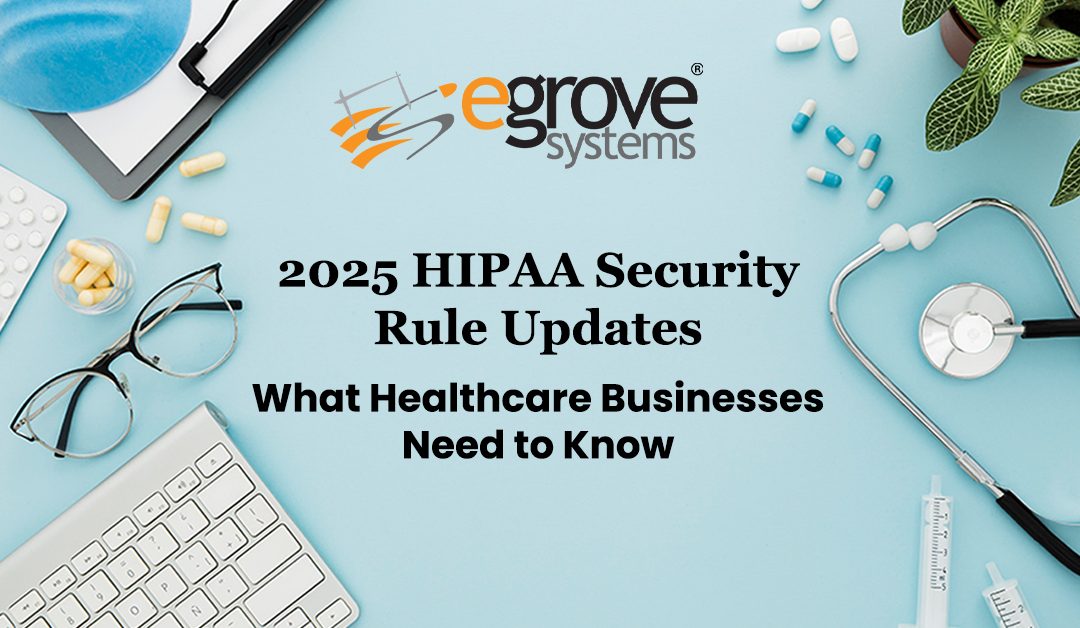Patient information protection is not just a legal requirement in the healthcare industry anymore. It is a basis upon which patient trust is built. HIPAA security rules govern this, and to ensure patients remain protected, the rules are updated regularly. Healthcare businesses must comply with the upgrading rules, providing patient information remains confidential. 2025’s HIPAA security rule updates are out, and healthcare companies must evolve their practices to stay compliant and trustworthy. From a small clinic to multispecialty hospitals, all need to apply these rules to prevent legal consequences and increase trust.
Understanding HIPAA Security Rules
HIPAA Security Rules are a basic set of federal rules created to keep patient information secure in the healthcare ecosystem. This particularly concerns the private information of patients that is shared and stored electronically. For healthcare service providers, it is essential to ensure that their policies match the compliance rules established by HIPAA.
HIPAA seeks to protect patient information in three key areas:
- Administrative protection focuses on internal policies and procedures to manage the security of patient data.
- Physical protection focuses on safeguarding physical systems and devices that store patient data against breach.
- Technical protection, which includes the use of technological tools such as encryption methods and access control, to prevent unauthorized usage of data.
For all healthcare professionals, from small clinics to large hospitals and other healthcare-related businesses, including insurers as well as their business partners, ensuring compliance across concerned parameters is vital. Any company that fails to adhere to the HIPAA Security Rules opens itself to fines and legal action.
Upgrades To HIPAA Security Rules
Before learning about 2025’s HIPAA upgrades, it is essential to understand their intent and importance. As cyber threats become more complex and hackers create new tactics to breach secure systems, access information, and use that information illegally, it is advisable to have best-in-class HIPAA upgrades that enhance potential weaknesses, keeping all patient information assets secured. The 2025 HIPAA upgrades are a push in that direction, including stronger laws and some new laws to drive overall security efforts.
The key HIPAA upgrades for healthcare organizations to be informed about and understand include:
- A stronger emphasis on risk assessment and risk management
Despite HIPAA indicating in several places that organizations should continually reassess the risks to their security, the upgrades not only indicate a stronger focus on regularly and comprehensively performing a risk assessment, but they also strongly emphasize the topics to be included in the risk assessment. In addition to performing the risk assessment, the areas the risk assessment should consider include:
- Continually scanning for vulnerabilities in systems.
- Evaluating new threats as technology advances.
- We are considering and documenting the risk assessments of our organization.
- Promptly remediating any identified security vulnerabilities.
- More Clarity on Cloud Security
Cloud services have become commonplace as organizations deploy more of their data and give access to third-party cloud providers, gaining systemic control over data. The updates will re-emphasize to organizations that cloud services must protect data/security protocols, standards, and procedures to adhere to HIPAA security criteria, just like in-house solutions. Organizations must confirm that cloud service vendors receive or sign HIPAA-compliant Business Associate Agreements. Conducting due diligence and clarifying how data is stored are vital processes.
- Information for the Security of Medical Devices
With more medical devices than ever communicating through remote communication outside the organization, the updates must:
- Suggest stronger operational controls, including physical, technical, and administrative controls.
- Recommend regular updates and patches.
- Encourage organizations to segment device networks to lessen the exposure further if one device is compromised.
- Improvement of Multi-Factor Authentication (MFA)
Access control is paramount. MFA refers to the process where users combine two or more sources of proof that they are who they say they are before accessing patient data. For example, a password plus code is sent to their phone. The 2025 update extends the requirement for MFA within healthcare organizations to include:
- Access to electronic health records (EHR).
- Remote access systems.
- Any other administrative points of access
- Proactive Incident Reporting
The 2025 rules put a greater emphasis on having a strong incident response program to recognize timely lapses and provide stronger responses to mitigate the future risk of a similar event. It is recommended to utilize reports to reduce harm, identify vulnerable points, and create action plans to address the gap. As noted in the advancements of HIPAA of 2025, healthcare organizations must:
- Have policies and procedures that assess and respond to breaches.
- Train employees to recognize and report breaches or suspicious activity.
- Report breaches to the Department of Health and Human Services (HHS) in designated timeframes.
- Document all details of every incident.
- Improving Training and Awareness
In 2025, improvements in training and employee awareness will be more critical than ever. Human intervention for any security purpose is typically considered the weakest link. As such, the new rules focus on improving training for all staff members to ensure no lapses occur, and the potential for breach is minimized. Healthcare organizations need to:
- Implement more proactive and frequent training for all staff members to test their knowledge and educate them about new trends and applications.
- Simulate phishing and other types of awareness testing to educate on steps for redressal.
- Targeted training based on the user’s role and access levels.
- Monitor and maintain detailed reports of training completion.
Conclusion
HIPAA security rules govern the healthcare sector in terms of security, and healthcare businesses must ensure they follow the changing regulations. Not only is compliance essential to prevent legal complications, but it is also essential for building trust. Complying with HIPAA upgraded rules and taking measures to implement them at scale, keeping updated with the new changes, is the need of the hour for all healthcare businesses. This is important for ensuring the safety of data against cyber threats.


